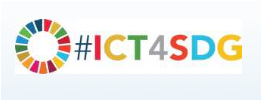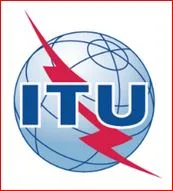The recent global Internet Governance Forum (IGF) ended in the city of Jalisco, Mexico with a call for the use of Information and Communications Technologies (ICTs) to ensuring sustainable development for humanity, writes REMMY NWEKE.
Introduction:
At the just concluded 11th annual Internet Governance
Forum in Jalisco, Mexico, the outgoing Secretary-General, of the United
Nations, Mr. Ban Ki-moon, expressed optimism that the Internet and Information
and Communications Technologies (ICTs) as tools, could play important role in
efforts to fulfilling the 2030 agenda.
ITRealms recalls that the 2030 agenda, was part of
the resolution of the High-level political forum on Sustainable Development
which is the central UN platform for the follow-up and review of the 2030
Agenda for Sustainable Development in anticipation of its being stimulus to
transforming the world by the year 2030, which is, in the next 14 years.
 Thus this
agenda is largely seen as a plan of action for people, planet and prosperity,
which seeks to strengthen universal peace in larger freedom, having in mind
that eradicating poverty in all its forms and dimensions, including extreme
poverty, is the greatest global challenge and an indispensable requirement for
sustainable development.
Thus this
agenda is largely seen as a plan of action for people, planet and prosperity,
which seeks to strengthen universal peace in larger freedom, having in mind
that eradicating poverty in all its forms and dimensions, including extreme
poverty, is the greatest global challenge and an indispensable requirement for
sustainable development.
From all
indications, ITRealms reports that if all countries and all stakeholders,
acting in collaborative partnership, will implement this plan including to free
the human race from the tyranny of poverty and want and to heal and secure the
planet, through bold and transformative steps which are urgently needed to
shift the world onto a sustainable and resilient path with a sense of a
collective journey, then the pledge that no one will be left behind could
become a reality.
Dreaming for 17 SDGs:
With the 17
Sustainable Development Goals (SDGs) and 169 targets the UN member states have
demonstrated the scale and ambition of this new universal Agenda; which seek to
build on the Millennium Development Goals and complete what these did not
achieve; to realize the human rights of all and to achieve gender equality and
the empowerment of all women and girls; to integrate indivisibly and balance
the three dimensions of sustainable development of the economic, social and
environmental.
ITRealms reports that these goals
and targets will stimulate action over the next 14 years in areas of critical
importance for humanity and the planet.
Farewell
note for ICT community:
In what seems like a farewell note for ICT community, the
out-going Secretary-General, Ban Ki-moon, went on to say that ICT has the
capacity to deliver smart solutions to address climate change, hunger, poverty,
women’s empowerment and more.
“Indeed, the Internet and information and communication
technologies (ICTs) can play an important, enabling role in our efforts to
fulfill the great promise of the 2030 Agenda for Sustainable Development,” he
said in an opening message to global IGF participants in Mexico, read by the Assistant
Secretary-General Lenni Montiel, urging delegates to keep working to ensure
universal access to a more open information society.
 Also speaking, the Undersecretary for Multilateral
Affairs and Human Rights at the Ministry of Foreign Affairs of Mexico, Miguel
Ruiz Cabañas, enjoined participants to “Ensure such equitable access is one of
the main challenges of modern society,” and declared his strong support for the
17 Sustainable Development Goals.
Also speaking, the Undersecretary for Multilateral
Affairs and Human Rights at the Ministry of Foreign Affairs of Mexico, Miguel
Ruiz Cabañas, enjoined participants to “Ensure such equitable access is one of
the main challenges of modern society,” and declared his strong support for the
17 Sustainable Development Goals.
“We are truly pleased that this event will foster the
enabling of sustainable and inclusive growth and fight climate change with
cross-cutting policies that contribute to access and use of the Internet,”
Cabanas said.
For the Coordinator, National Digital Strategy of Mexico
and Chairperson of the 2016 IGF, Alejandra Lagunes, said, “Clearly we need to
build on our points of agreement and exchange of ideas so that we can make the
most of all of the potential of the Internet.”
ITRealms further reports that local authorities and
other speakers at the opening ceremony echoed the call for an open and
universally accessible Internet while emphasizing the importance of net
neutrality and more international coordination on cybersecurity issues. Even as
this year’s IGF is the first since its 10-year renewal by the General Assembly,
speakers emphasized on the importance of the IGF multistakeholder platform for
public policy dialogue.
ITU
perspective:
According to experts at the International
Telecommunication Union (ITU), ICTs such as satellites, mobile phones or the
Internet, play a key role in addressing the major challenges related with the
climate change and sustainable development, which some industry analysts have
since code-named ICT for Sustainable Development (ICT4SD).
They also posited that ICTs are fundamental for
monitoring climate change, mitigating and adapting to its effects and assisting
in the transition towards a green and circular economy. Hence, by raising
awareness on the role of ICTs, ITU is promoting transformative solutions that
could ensure a sustainable future for all, by way of promoting and addressing
the Sustainable Development Goals (SDGs) through the use of ICTs.
To this end, ITU resolved to address some four goals
namely Goal 7: Affordable and Clean Energy, Goal: 12 Responsible Production and
Consumption, and Goal: 13 Climate action through its climate change programme
which devotes its efforts to guiding member states, ICT sector and academia on
climate change adaptation and mitigation, improving energy efficiency, reducing
greenhouse gas emissions and using environmentally sustainable methods for
handling e-waste. Through the United for Smart Sustainable Cities (U4SSC)
initiative, ITU also commits to attaining Goal 11: Sustainable Cities and
Communities.
As said by ITU Secretary-General, Mr Houlin Zhao,
the union’s General Secretariat (GS), Telecommunication Standardization Bureau
(TSB), Radiocommunication Bureau (BR) and Telecommunication Development Bureau
(BDT) have jointly developed some thematic areas on environment, climate change
and e-waste, to name a few.
Reducing
CO2 per person with partnership:
He noted that under the GS activities, ITU Climate
Neutral saw to its worldwide operational environmental footprint for 2014 as
published in the UN consolidated document "Moving Towards Climate
Neutrality" at 3.2 tonne CO2 equivalent per person under the management,
as compared with the UN average of 8.3 tonne per person.
Thus, ITU can
successfully claim its 'climate neutral' as of 1 January 2015, and has already
offset its emissions for 2015 in advance of having final consumption figures;
The Global Location Number (GLN) cooling system, he
explained has been on stream throughout the 2015 summer period, and has
provided 924 MegaWatt hours (MWhr) of cooling power in 2015 that would
otherwise have been sourced from electrically powered systems.
ITU, he said, participated as keynote presenter in the
celebration of the 2016 World Telecommunication and Information Society Day
(WTISD 2016) organized in Valencia (Spain) on 19 May 2016. The event, which had
the theme “ICTs and climate change”, provided a unique opportunity to present
ITU’s activities to public sector, private sector companies and academia
involved in developing green ICT solutions in the region of Valencia.
GS and TSB participated at COP-22 and co-organized a side
event with Global e-Sustainability Initiative (GeSI) and United Nations Framework Convention on Climate Change (UNFCCC) on 17 November 2016 and had also hosted with
BR, the 11th ITU Symposium on ICTs, Environment and Climate Change on 21 April
2016 in Kuala Lumpur, Malaysia.
Ongoing
actions:
ITRealms gathered that TSB and BR are working
together with ITU-T Study Group 5 on the targets set by the Connect 2020
Agenda. An update of the draft proposal for the Connect 2020 Agenda was
presented during the ITU-T Study Group 5 meeting that took place from 10 to 14
October 2016. Consequently, 4 new work items were created. The Connect 2020
Agenda is also being worked on with UNIDO, the Secretariat of Basel Convention and the United Nations University
(UNU) that agreed to embrace the "Connect 2020 Agenda – Environmental
Goals" as a common global agenda on e-waste management.
Whereas the Telecommunication Development Bureau (BDT)
recent activities include the development of standardised training materials
for a full training programme on ICT and Climate Change, which is underway.
This, BDT director, Mr. Brahima Sanou, disclosed, will be used for training and
capacity building purposes. Contributions by relevant experts in ITU-T have
enriched the preparation of these modules, and a number of academic institutions
are also contributing as well as editing the materials, even as ITU Centres of
Excellence will also benefit from these materials.
 BDT, Sanou pointed out is developing publications on
e-Waste Management Policy best practices models, in addition to enjoying the
cooperation of the United Nations University (UNU) and International Solid
Waste Association (ISWA), BDT is developing a project to improve the
availability and quality of e-waste statistics; and also working on the development
of a joint pilot project with University of La Plata of Argentina, to establish
an e-Waste Management Plant. This project could be replicated in other
countries.
BDT, Sanou pointed out is developing publications on
e-Waste Management Policy best practices models, in addition to enjoying the
cooperation of the United Nations University (UNU) and International Solid
Waste Association (ISWA), BDT is developing a project to improve the
availability and quality of e-waste statistics; and also working on the development
of a joint pilot project with University of La Plata of Argentina, to establish
an e-Waste Management Plant. This project could be replicated in other
countries.
Summary:
As the plans for the International Conference on Early
Warning Systems gets underway in Cancun, Mexico, in May 2017, courtesy of a
partnership with BDT alongside World Meteorological Organization (WMO), United
Nations Office for Disaster Risk Reduction (UNISDR), United Nations Children's
Fund (UNICEF), United Nations Platform for Space-based Information for Disaster
Management and Emergency Response (UNSPIDER), Office for the Coordination of
Humanitarian Affairs (UNOCHA); it is expected that more smarter solutions aimed
at actualising agenda 2030 on schedule,
Only then will the determination to end poverty and hunger, in all their
forms and dimensions, and ensure that all human beings could fulfil their
potentials in dignity and equality as well as in a healthy environment, protected
from degradation, including through sustainable consumption and production;
sustainably managing natural resources and taking urgent action on climate
change, so that it could support the needs of the present and future
generations, in consonance with a smart city definition; which is an urban
development vision to integrate multiple ICTs and Internet of Things (IoT)
solutions in a secure fashion to manage a city's assets, not limited to local
departments' information systems, schools, libraries to name, but a few.
ITREALMS ... everything news digitally!





No comments:
Post a Comment